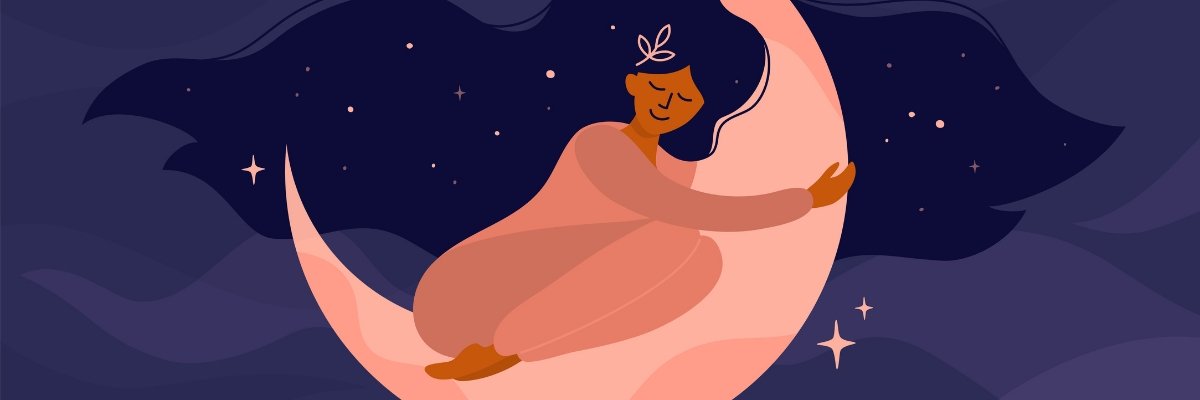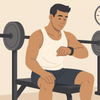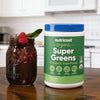5 Easy Tips For The Best Sleep Of Your Life

Our bodies are designed to fall asleep.
I know, I know. It doesn’t feel that way, does it? How often do you curl up in bed only to find yourself lying awake, tossing and turning? If you’re like most people, the answer is probably, “too often”.
The truth is that good sleep isn’t as simple as getting into bed and closing your eyes, but there’s good news!
Your sleep problems most likely aren’t the result of a genetic predisposition to not-sleeping. Most likely, you’ve just developed a lot of lifestyle habits which are interfering with your body’s natural sleep patterns!

In this article, you’ll learn 5 tips to help you get your sleep back on track.
Keep A Regular Sleep Schedule
Everyone has that one unreliable friend, the one who shows up late for everything, and is impossible to plan for?
Well guess what? If you don’t have a regular sleep schedule, then you are that friend to your body. Plenty of people think that sleep is as simple as “Step 1: Get in bed, Step 2: Fall asleep”, but it’s not. Actually, sleep is a process that begins sometimes as much as 2 hours before you actually go to bed!
A consistent sleep schedule strengthens your circadian rhythm. Consider adopting a “wind-down routine” that starts an hour or so before bed to let your body know that it needs to prepare for sleep.

Keep It Cool
Have you ever noticed that it’s easier to sleep in a cold room than a hot one? You’re not imagining things. It’s biology!
Your body temperature has to drop 3-4 degrees Fahrenheit in order to fall and stay asleep. For most people, a room temperature of about 65 degrees Fahrenheit is optimal, give or take a degree. So lowering the thermostat is an easy way to help yourself fall asleep!
You can also hack your body’s need for a lower temperature by taking a warm bath or shower before bed. Contact with the hot water causes blood to rush to the surface of your skin. When you get out, you experience a massive dump of body heat and your core temperature plummets. This primes your body for sleep and makes drifting off easier.
Dim The Lights
We live in a dark deprived world. If you’re like most people, then it probably isn’t uncommon for the lights to be on in your house right up to the moment that you crawl into bed. Sometimes, even after the lights go out, we stay up on our phones and expose ourselves to blue light!
Just how big a problem is this?
 Consider a study done on campers which found that “people’s internal clocks were delayed during their normal schedules [by] 2 hours and 36 minutes compared to when they were exposed to only natural light on their camping trip.”
Consider a study done on campers which found that “people’s internal clocks were delayed during their normal schedules [by] 2 hours and 36 minutes compared to when they were exposed to only natural light on their camping trip.”
To get better sleep, you need to send signals to your brain that it’s getting close to bedtime. Hours before you go to bed, dim the lights in your home. This creates a sort of simulated sunset and tells your brain that it’s time to start winding down.
Remember: Caffeine Is Not Your Friend
Everyone knows that caffeine keeps us from falling asleep, but usually all this means is that we’ll try to avoid drinking soda close to bedtime. What most people don’t understand is that caffeine actually stays in your system much longer than you’d expect.
Caffeine has a half-life of about 5-6 hours. This means that you can drink a can of soda (usually about 40 mg of caffeine) at 6 pm with dinner, and by 11 pm there will still be 20 mg of caffeine swimming around in your bloodstream.
These trace amounts of caffeine can lead to sleep interruptions and decrease the amount of time you spend in deep, restful sleep.
Try Natural Sleep Aids
Why would you choose a natural sleep aid over a prescription alternative? For starters, medical professionals advise against taking prescription sleep aids for a period of longer than 2-3 weeks, and some of these medications have been shown to be habit forming.
Natural sleep aids come without the hassle of a prescription, and many people find them extremely effective! Here’s a short list of options for you to try.
Melatonin
Melatonin is the “sleep hormone” that your body produces in response to darkness. Studies suggest that melatonin supplements taken before bed may help speed up the time it takes to fall asleep.
Melatonin can be found in tablets, gel capsules, and even chewable gummies which are great for kids. As a hormone produced naturally in the body, melatonin is safe to ingest.
Valerian Root
This natural remedy has been used to treat sleep disorders since the days of the ancient Greeks! Studies examining subjective sleep quality show that people who take valerian root before bed often report having fallen asleep more quickly and slept more soundly than without it.
Magnesium
Magnesium is a crucial mineral which plays an important role in muscle relaxation.
In one study, patients were divided into two groups. One group received a placebo while the other received a 500 mg dose of Magnesium. After several months, the group which received the magnesium supplement was found to have experienced improved sleep relative to the control group who received the placebo.
Wrapping Up
Sleep is one of the most important functions the human body performs. Your body uses sleep to store memories, learn new information, and plenty of other things.
Don’t short change yourself! Fix your sleep and upgrade your life by trying out these 5, easy tips for better sleep!
Sources
https://www.ncbi.nlm.nih.gov/pmc/articles/PMC3703169/
https://www.ncbi.nlm.nih.gov/pmc/articles/PMC4394901/
https://pubmed.ncbi.nlm.nih.gov/18036082/
-
Posted in
Sleep











